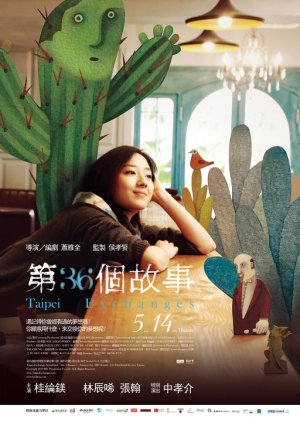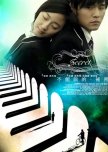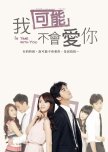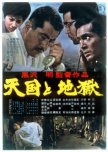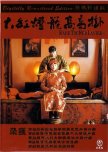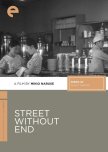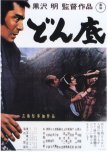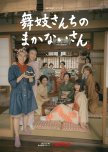
This review may contain spoilers
We are the stories we tell
Taipei Exchanges is a gently introspective slice of life about two sisters who ponder what stories hold value when they set up a barter system in their coffee shop. This film is not for everyone. The changes in the sisters and their customers are small and quiet and will go unnoticed if you don't pay attention from your table in the corner of their café. If coffee and discovering the meaning behind the stories people tell about their lives and belongings interest you, pull up a chair, order a coffee and cookie and see where the film and memory takes you.If someone gave you the money to do one, which would it be? Use the money to study or travel?
Doris is practical and has always wanted to open an elegant coffee café. When she finally has the opportunity fate turns her dream into the quirkiest shop in Taipei. Without giving too much away, on her opening day she ends up with a plethora of calla lilies and invites people to bring something to exchange for them. Afterwards with their shop full of junk, her sister has the idea that customers can bring something to exchange for whatever is in the shop thinking it will create more foot traffic and people will stay longer and drink and eat more. Doris reluctantly agrees hoping it will lead to financial freedom for her. Josie wants a car for herself and a set of bone china for her mother.
Along the way, the sisters find that what things are worth is a deeply personal belief. What is the story behind it? Love letters, songs, a mirror ball, stuffed alligator, and even cleaning out the backyard drain are up for exchange. As Doris hears the stories of the places people have traveled, a shift begins to take place in her.
What do you treasure the most?
Doris makes a decision that seems radical and perhaps it's radical self-love to realize that what we value may change over time. The sisters believe that whatever you are looking for someone has and it's only a matter of time before the need to have and the need to release meet each other. Often our lives can be changed by one small incident and decision, in Doris' case a fender bender with a small truck full of calla lilies led to small change after small change leading to a larger change in her life and the lives of those around her.
Taipei Exchanges is beautifully and thoughtfully shot, within the store and around Taipei. The OST is soothing and won't jar you out of the existential questions that arise over what we value, why, and what is our inner value to ourselves and others. For the most part the acting is natural and the sisters have good chemistry in the way that sisters love each other still bicker. Some of the basic business issues are touched upon when starting up a business, but don't weigh the story down. People off the street answer two of the questions above and though some may sound more scripted, others are quite relatable.
Everyday we tell ourselves stories about our failures, hopes, dreams, and even the lies about ourselves that help us sleep at night. We cherish the stories behind an object or even despise an object because of the emotional baggage that it carries. Is a song worth a book? A Barbie dollhouse worth a mirror ball? What happens when people exchange goals and dreams? This film will not turn your world upside down, but it may cause you to take a moment to look around and even within yourself and wonder what has value and why?
If you had the choice between money and calla lilies, which would you take?
2/24/23
Was this review helpful to you?

Behind every object, every painting and every book there is a story. In Doris’ Café, not only can you sit down drink café lattes or eat delicious éclairs, but you can trade any object, song or story in exchange of another which holds your interest. This beautiful movie depicted the lives of two sisters, Josie and Doris who run a quaint coffee shop in the heart of Taipei. It emphasizes the value we place on objects as well as the stories we share on a daily basis, however, when asked the question, what do we treasure most, the answer lies not in these objects, but the story behind them; the people we encounter and the memories we make.
This movie, though beautiful, was a bit slow at the start but the wonderful scenery and themes surrounding the plot made it a great watch. Next time you purchase something second hand, or receive a hand me down, ask yourself, “What story is behind this object? What memory will I have with it?”
Was this review helpful to you?

A mellow ode to the barter system, object value, and storytelling
This film is slow and mellow, like most slice-of-life tales, and I very much came to love it. In the beginning, I was quite put off. Where is this going? When will Josie start running her decisions by Doris? Will we see the less aggravating side of their sister relationship?The first thing that really drew me in is the fact that their business is based around the bartering system - something I am quite fond of myself. While the coffee and baked goods are still sold using money, the collected items around the store are all for exchange. It's something that they kind of fell into by circumstance, but quickly proved to be the best thing to happen to them. We also got to see how it meant different things to each of them. To Josie, it was an opportunity to exchange up for both parties. Item A means more to me than Item B, while Item B means more to you than Item A, let's trade. Meanwhile Doris saw it as a peek into lives and dreams she never had. Each person's experiences led them to being able to make an exchange and carried memories through the exchange themselves. In these perspectives, you could see these alternative aspects of the leads' personalities that they previously didn't get a chance to explore.
"In this city, surely there's someone looking for bone china, and surely there's someone with a spare set. Surely someone has an empty sofa, and surely someone else is looking for it. They just haven't found each other."
I also like how stories got incorporated. The overall film is sort of being told as a story. Then we have a storytelling traveler who becomes a frequent and important presence. We also have stories being told by visitors about why they want certain goods or are there in the cafe to begin with, and the stories being told by Josie to serve as an exchange for something Doris wanted. And throughout it all, Doris never had a story to tell herself. Which made the ending just that much stronger and memorable.
"You were right to say that by running an exchange, we'd hear lots of stories about things we haven't experienced. But the more of them I heard... the more I wanted stories of my own to exchange."
And it make the subtle subtextual romance a mellow sort of poignant too. Did Doris like the storyteller, or was she romanced by the stories he told and the wanderlust he inspired?
Was this review helpful to you?

